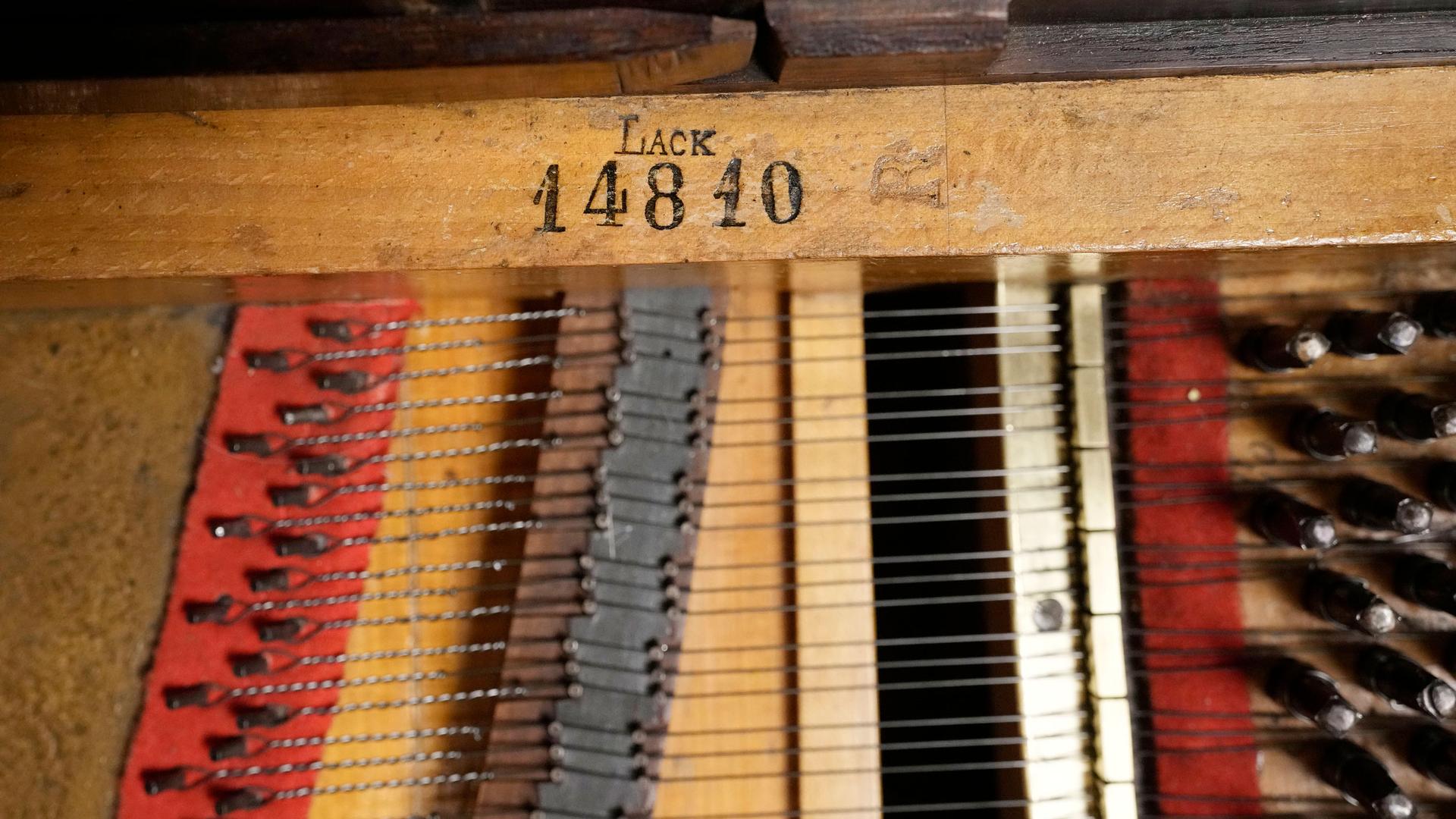When American pianist Pamela Howland was in Warsaw, Poland, on holiday, she went on what she thought was a simple mission: Find a live Fréderic Chopin concert.
After all, Warsaw is the city of Chopin — it’s his hometown.
But Howland was in for a rude awakening when, back in the summer of 2006, she discovered that in Warsaw, she couldn’t even find a magnet with Chopin’s name on it.
This mission — ultimately to revive Chopin’s music in Warsaw — became Howland’s life’s work.
A week prior to their trip to Poland, Howland and her husband had been in Vienna, where it seemed they couldn’t escape the sounds of classical composer Wolfgang Amadeus Mozart. There were concerts on every corner, decorative plates, Christmas ornaments and gold-wrapped marzipan chocolates all bearing the prodigy’s name.
Related: ‘Food for our soul’: Cellist Camille Thomas performs solo at Paris museums during lockdown
The couple noted this difference to Jarek Cholodecki, the owner of the Polish bed and breakfast where they were staying.
“How could it be, no Chopin in Warsaw?”
“I became a little bit nervous and really quite suspicious,” Cholodecki said. “How could it be, no Chopin in Warsaw?”
Cholodecki agreed to make some calls for them. But everyone told him the same thing: Chopin was only available on Sunday afternoons in the summer at Lazienki park.
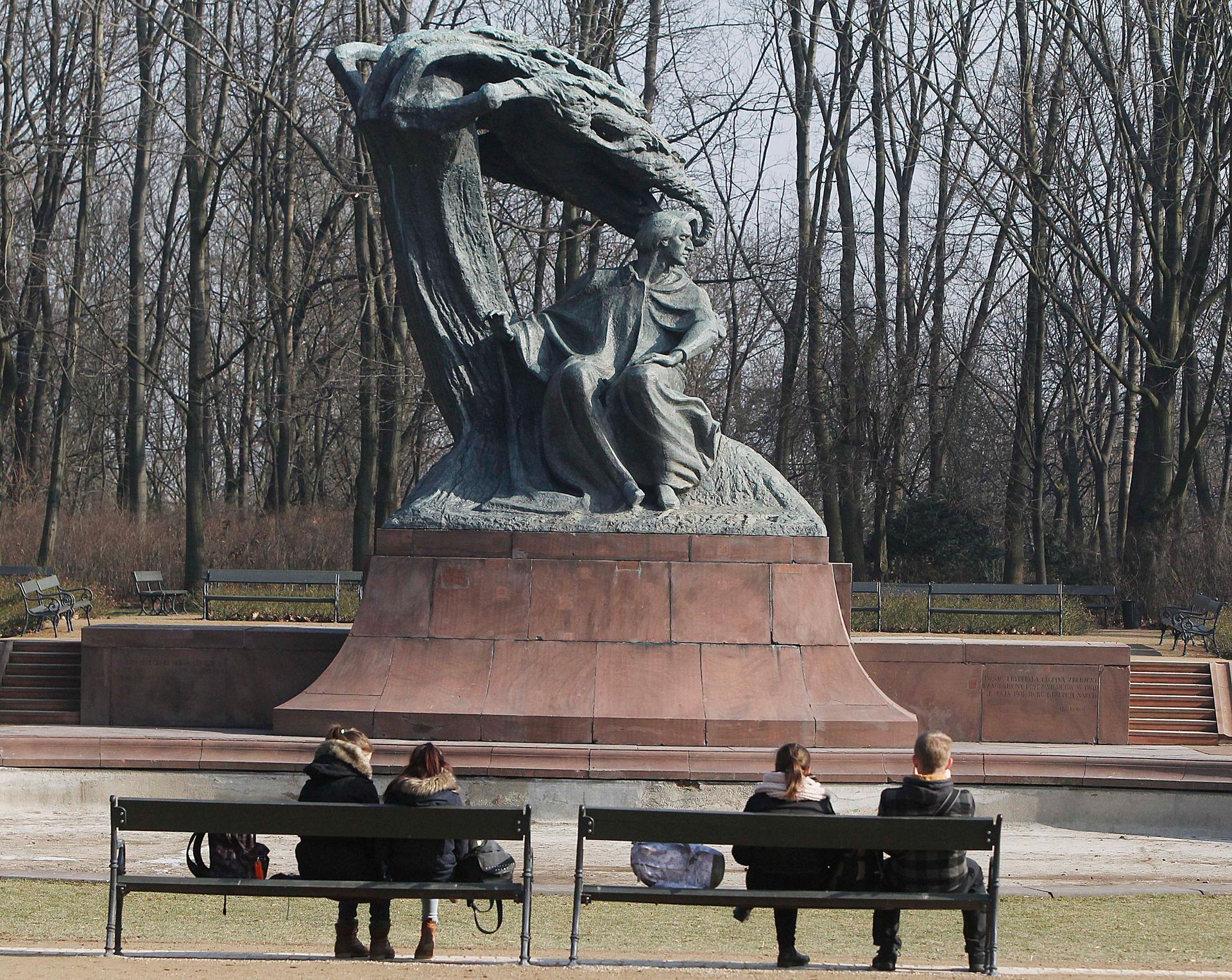
The classical composer — known for his mesmerizing nocturnes and mazurkas (a Polish folk dance) — has long been the pride and joy of the Polish capital. Chopin left Warsaw when he was 20 years old, refusing to return as long as Russia occupied the country. He never saw his homeland again.
Today, his heart sits in an urn located inside the city’s Church of the Holy Cross.
So, how could it be so difficult to hear a live Chopin performance?
Cholodecki said that Poland was still rediscovering its identity after decades of being under Russian communist rule. After World War II, Russia ruled over Poland until 1989.
“Chopin was like a backbone of Polish culture, but not very important for me, to be honest with you,” he said.
Related: A new monument in Poland sparks concern about Holocaust revisionism
But Howland wasn’t ready to accept that. She offered to return to Cholodecki’s bed and breakfast to play Chopin at her own expense.
Several years later, that’s exactly what happened.
After securing some funds, Cholodecki put a grand piano in a spare room attached to his bed and breakfast, and in 2009, he invited Howland back to perform Chopin’s works and lead a workshop for young artists from all over Eastern Europe.
Related: Barcelona opera reopens to full house — of plants
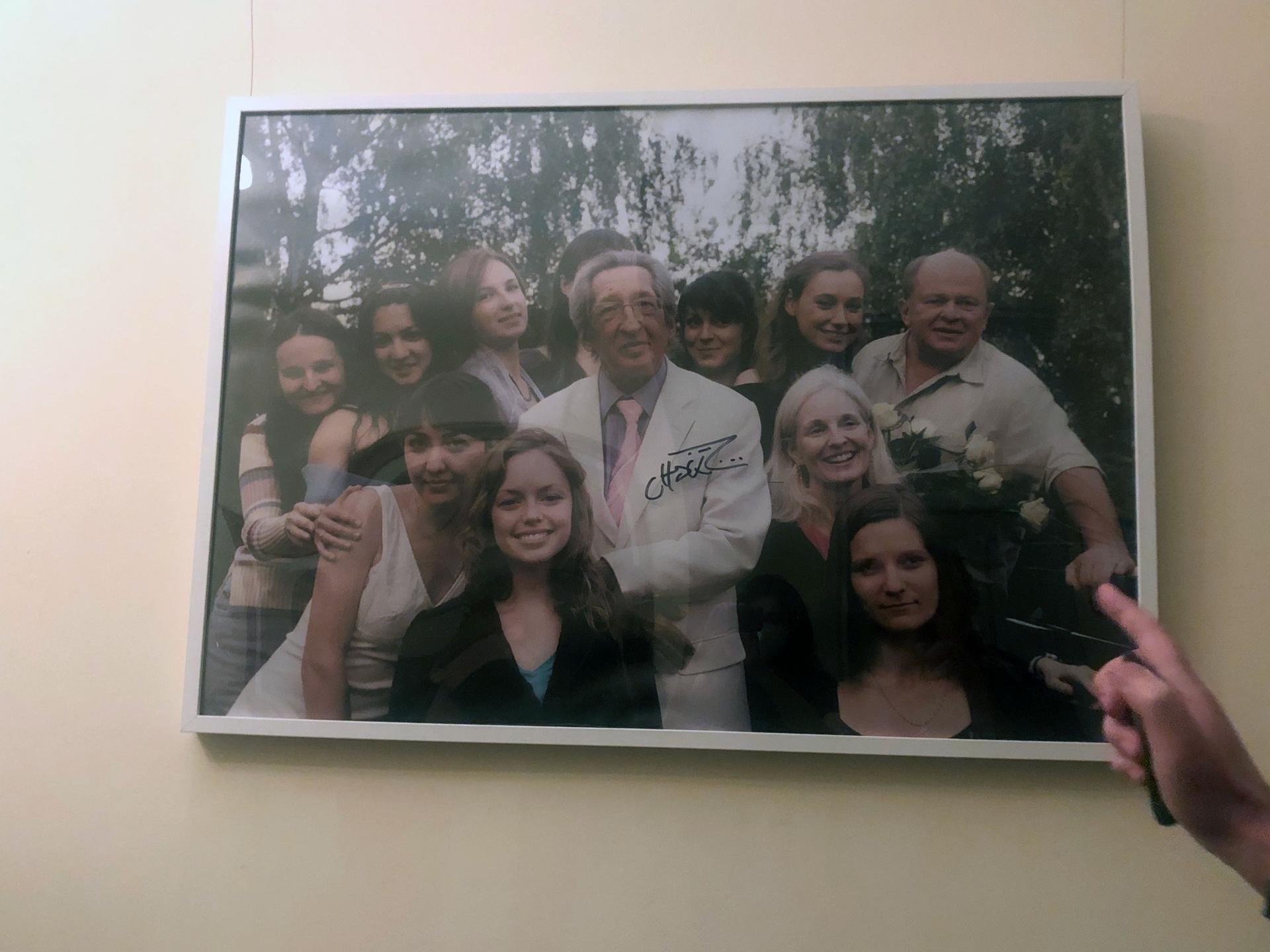
In 2010, on Chopin’s 200th birthday, Cholodecki and Howland launched the Chopin festival that takes place annually.
Their goal has been to make Chopin’s music more accessible and bring his music back to his preferred venue — the salon.
At the height of the 19th century, there were over 40 salons throughout Warsaw, but that number dwindled down to virtually zero as technological acoustic improvements made larger venues more attractive.
“In the Polish musical national discourse, [Chopin] needed to be rescued from the salon.”
“In the Polish musical national discourse, [Chopin] needed to be rescued from the salon,” said Halina Goldberg, a musicology professor at Indiana University who specializes in Chopin.
“It was a way of elevating him … of saying this is not just some frilly salon music. This is not just trivial. This is great music that belongs in a concert hall.”
But for Cholodecki and Howland, salons felt more personable than large stages.
“In these giant spaces, the musician becomes totally detached from the audience, just concentrated on the notes,” Cholodecki said. “Which I think is … depressing.”
For nearly 10 years now, Cholodecki has hosted nightly Chopin performances in a space called Chopin Salon, attached to his bed and breakfast. He converted it into a 19th-century Viennese style salon, complete with a grand piano, old-fashioned wicker chairs, and portraits of the grand maestro himself.
To date, the space has hosted more than 2,400 performances with maestros from across the globe.
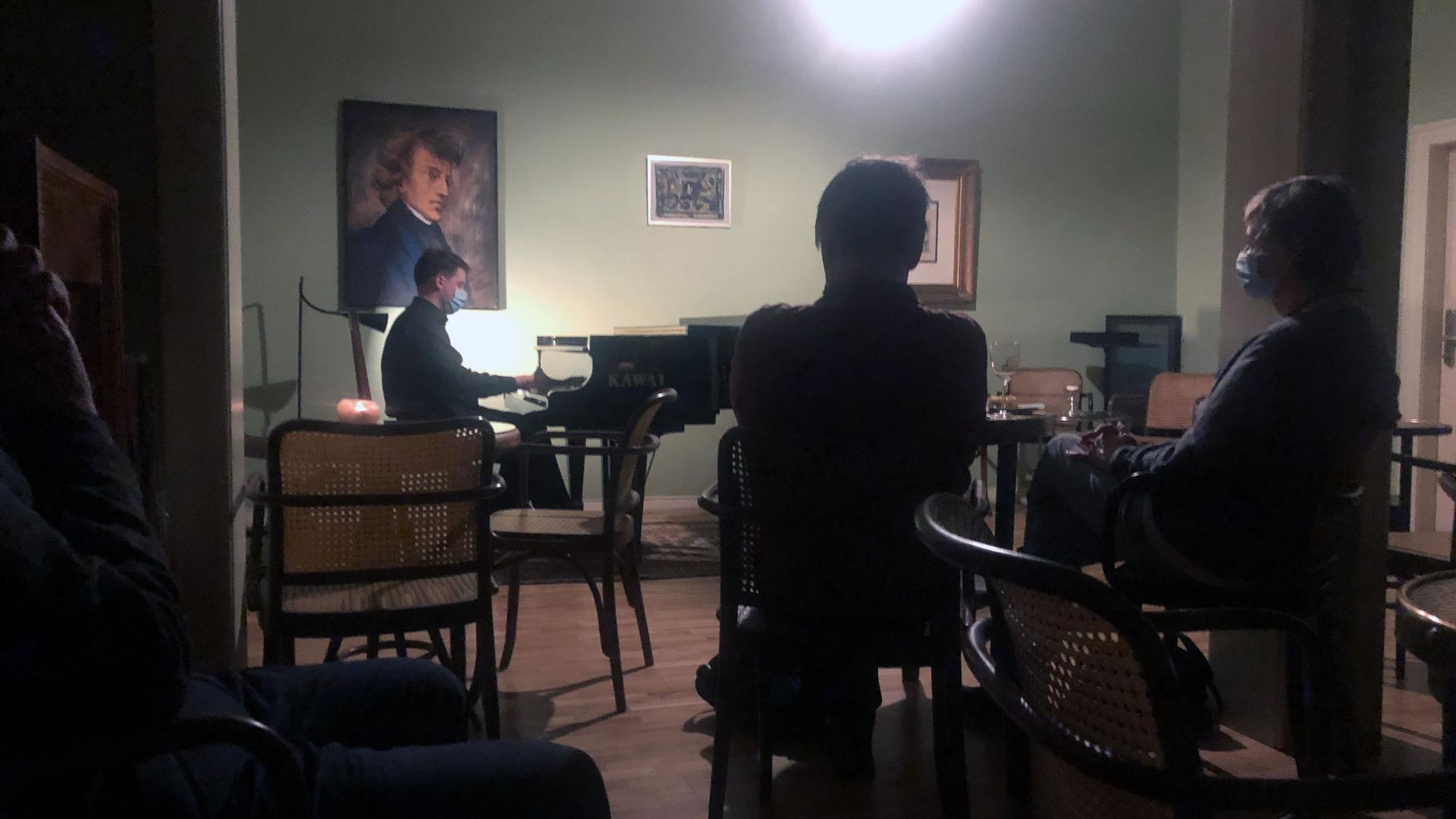
Howland passed away from pancreatic cancer last September.
But Cholodecki said that thanks to her legacy, “the next generation of musicians in Warsaw will be better trained, better motivated, and generally less pessimistic about the future.”
As for her mission to revive a a city-wide appreciation for Chopin, Howland received approval from one of her biggest musical idols.
On World Music Day in 2013, Howland placed a grand piano on the back of a moving trailer, hopped on and started playing Chopin across the city.
As she was passing the Church of the Holy Cross, where Chopin’s heart rests, a motorcade passed by. At the end of it was Paul McCartney — Howland’s modern-day music idol — giving her a big thumbs up.
It was the Beatles singer’s first visit to Warsaw.
“I wish Paul [McCartney] knew that, you know, a few years earlier, he would not have seen Chopin on the street at all.”
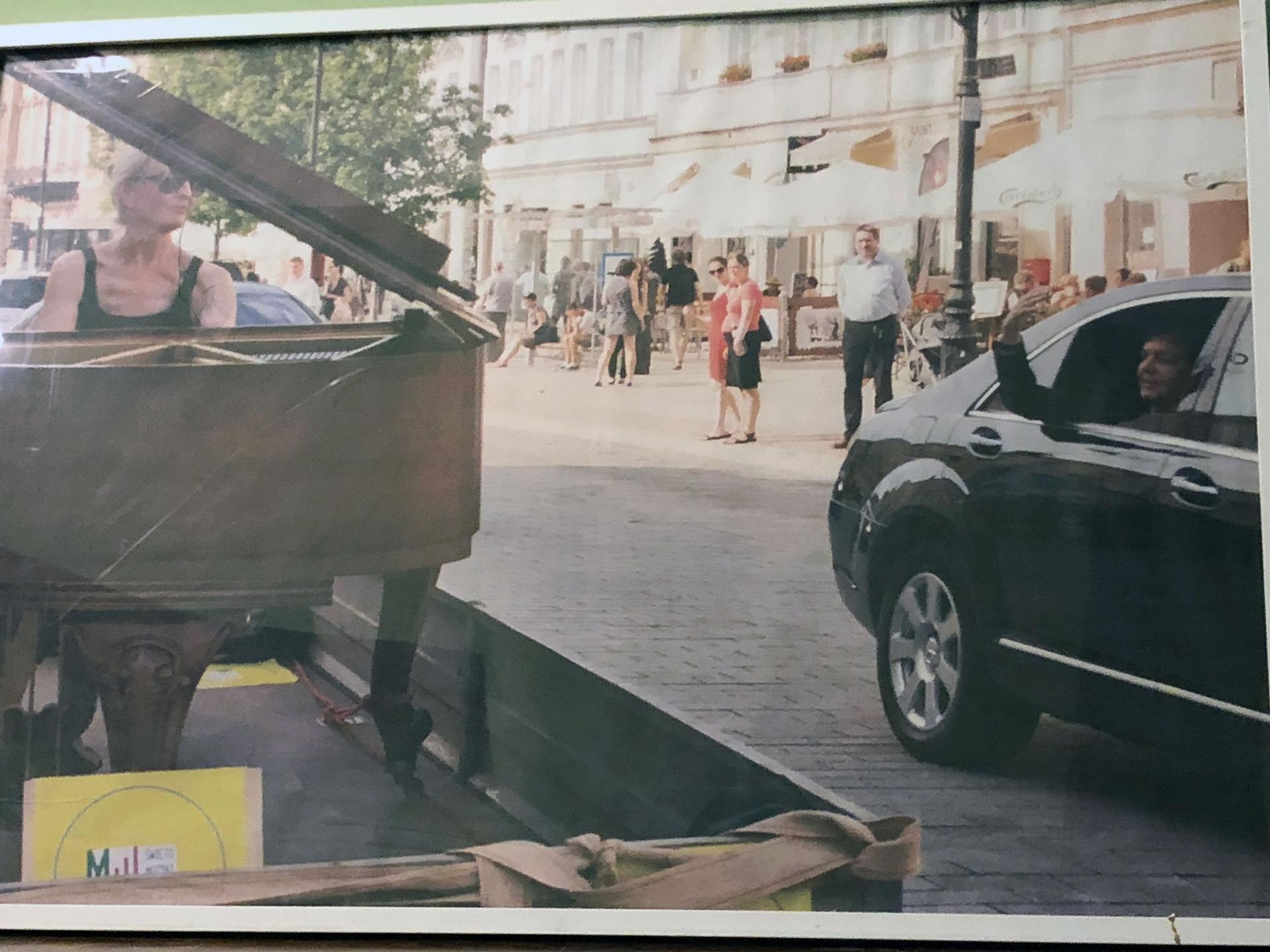
“I wish Paul knew that, you know, a few years earlier, he would not have seen Chopin on the street at all,” Howland’s husband Wendell Myer said.
“It’s Pam that was really instrumental in making that happen.”
